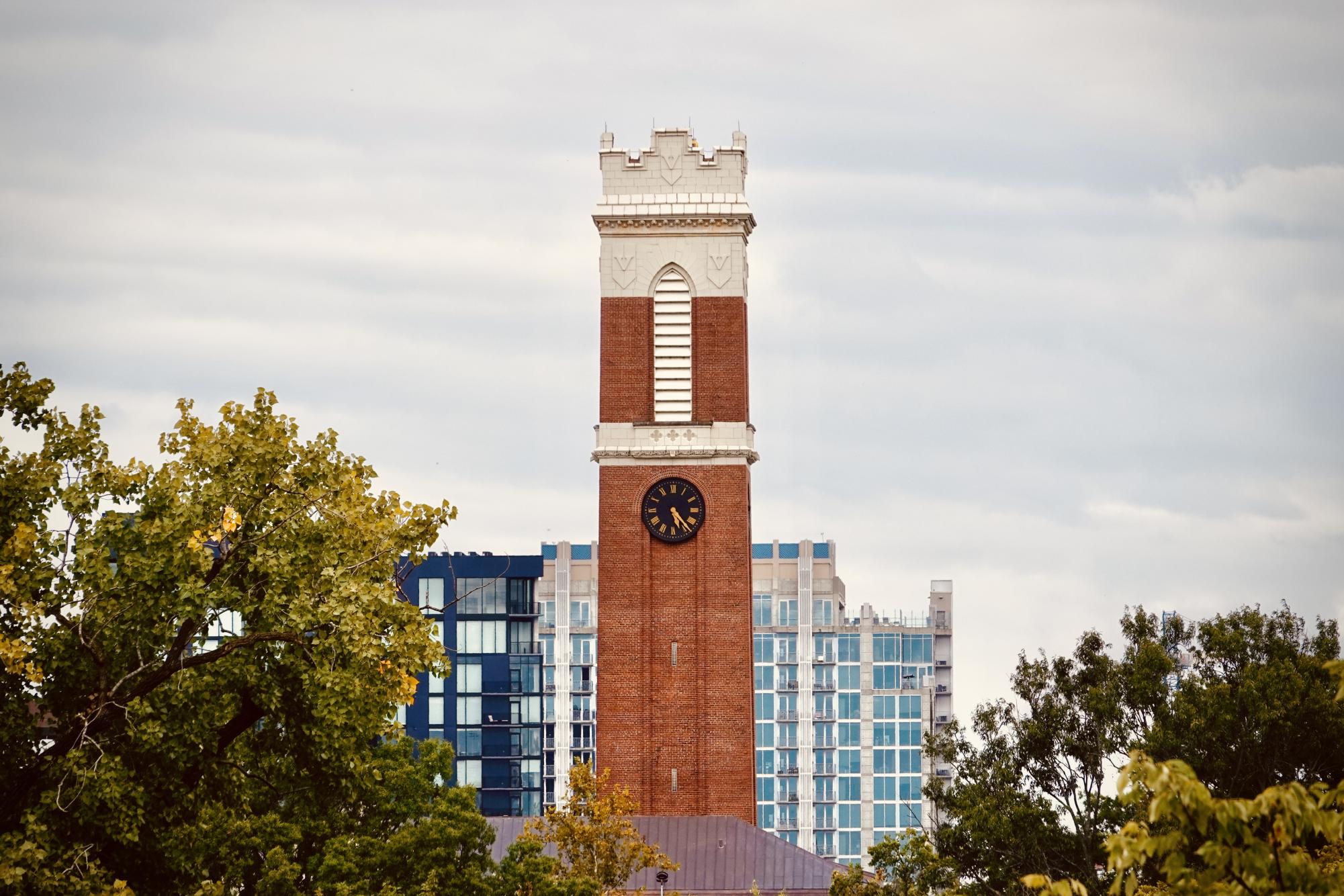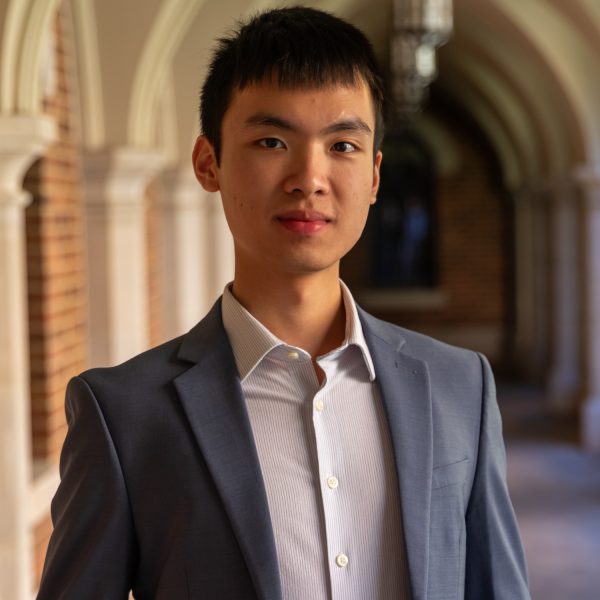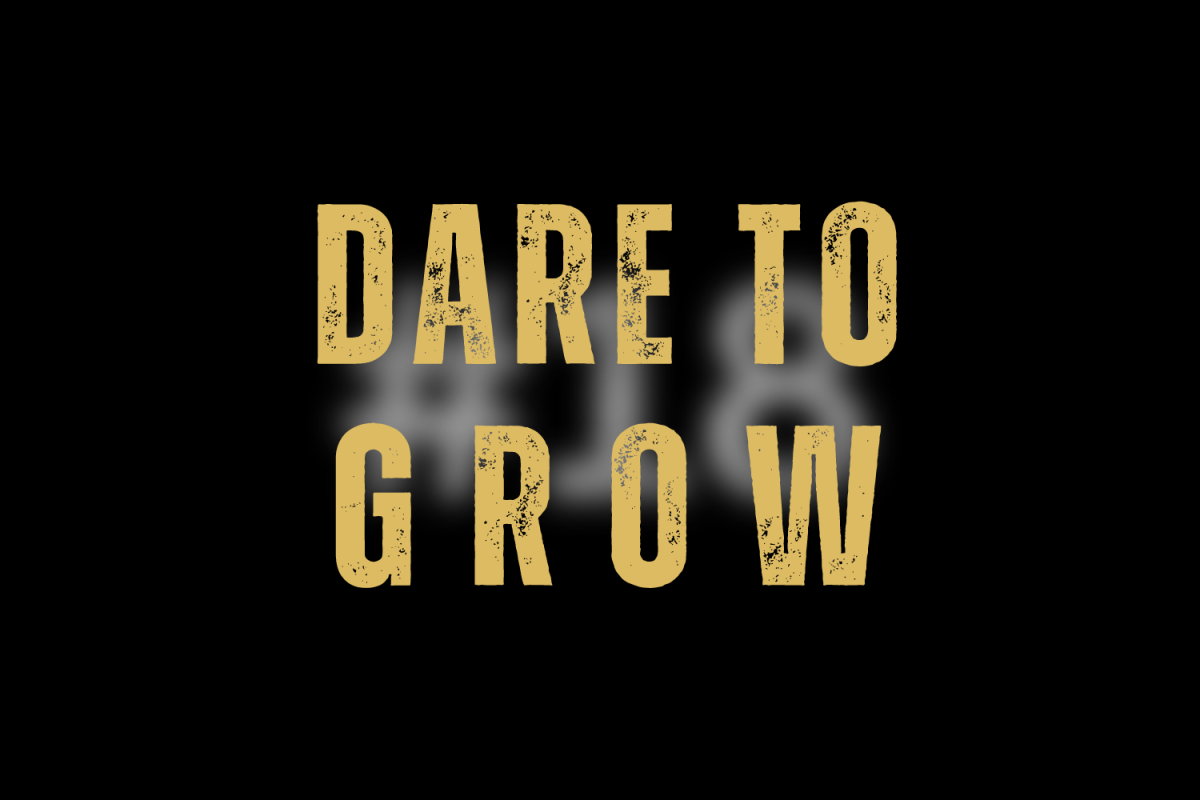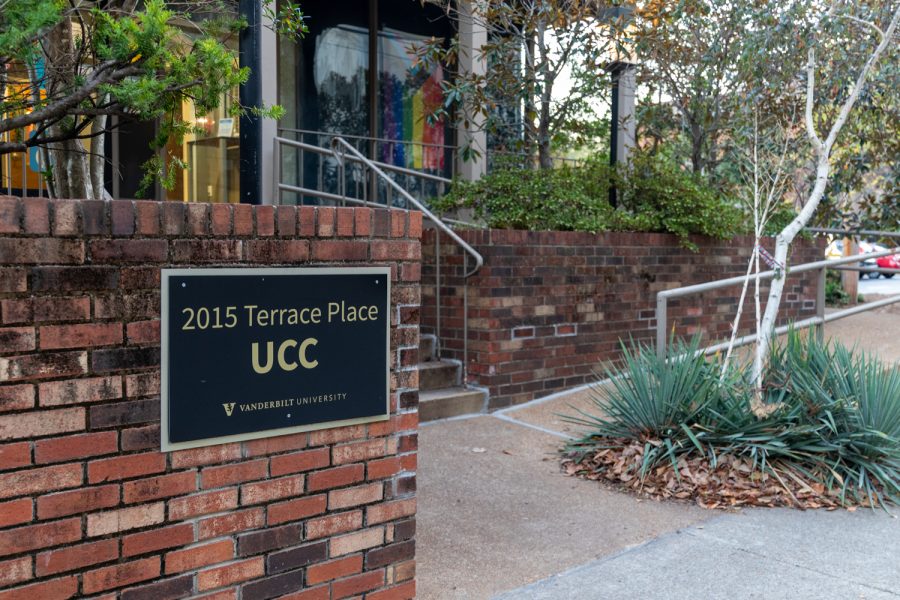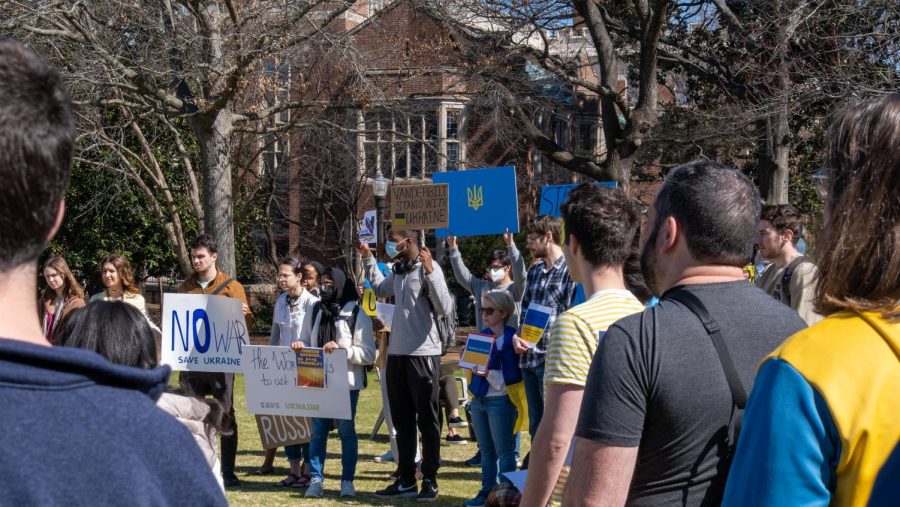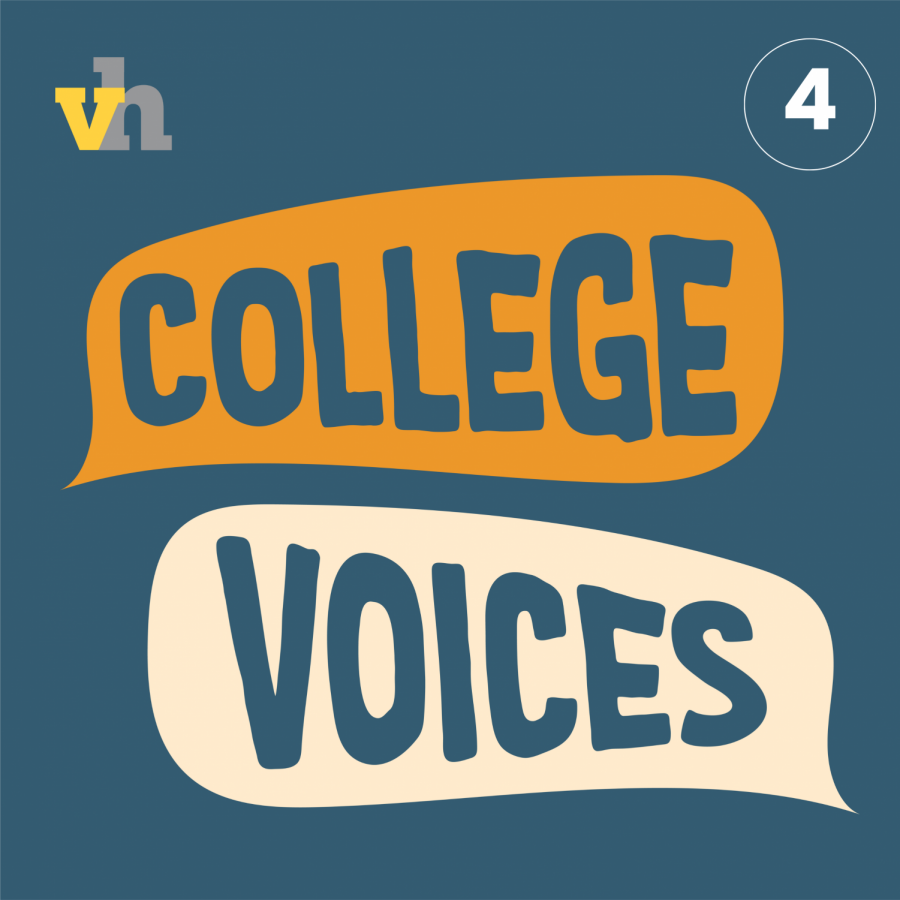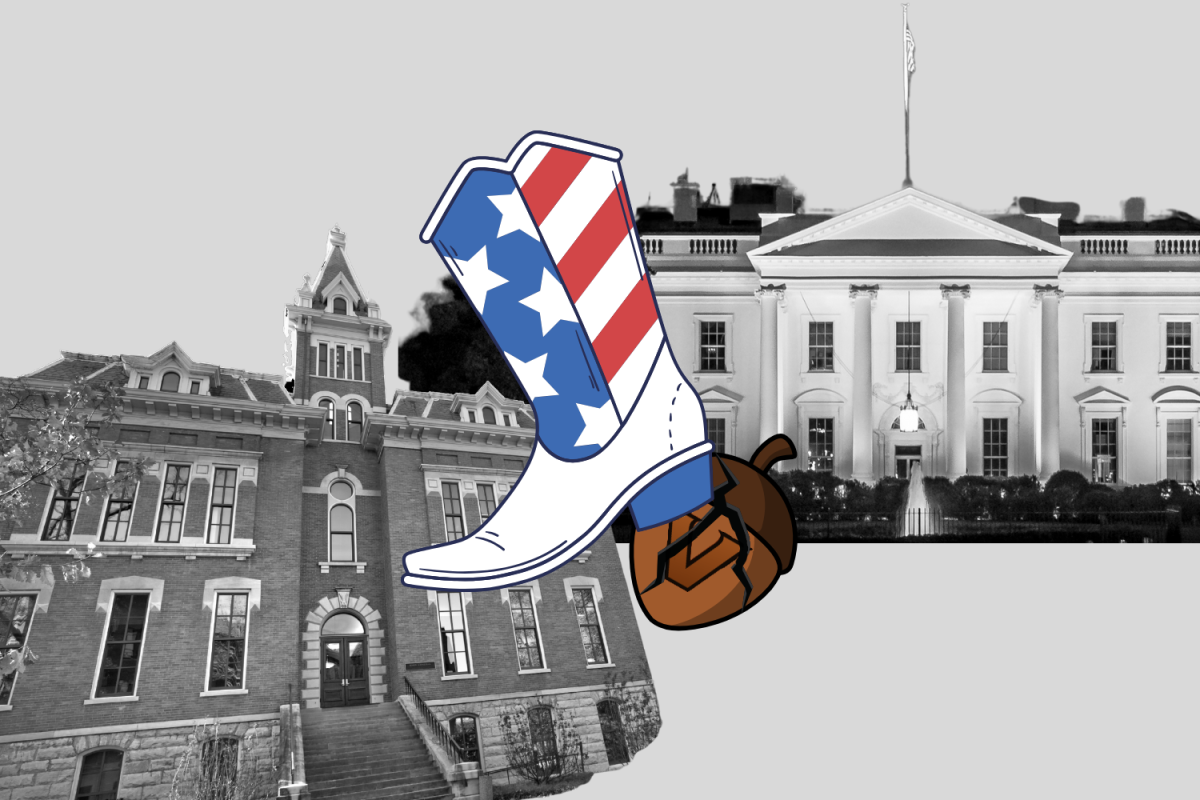Dear Editor,
On Feb. 17, we interviewed Chancellor Daniel Diermeier to gain insight into the current state of higher education in Tennessee and his vision for Vanderbilt going forward during these tumultuous times.
We conducted this interview as part of our research for an op-ed article in The Tennessean, where we interpreted the Chancellor’s responses, highlighted his most profound points and examined how Vanderbilt’s future is intertwined with the future of Nashville and Tennessee as a whole. However, we believe that everyone — particularly Vanderbilt students whom the Chancellor’s responses most directly affect — should have access to the complete transcript in its original form.
Publishing this transcript in The Hustler serves two key purposes: it enables readers of our op-ed to evaluate our interpretations of the Chancellor’s answers, while also allowing the public to form their own opinions about his responses.
Sincerely,
Oskar von Widekind ’28 and Yasin Davletyarov ’27
———
von Widekind and Davletyarov: How do you see Vanderbilt differentiating itself from peer institutions in an increasingly competitive higher education landscape? And what impact on higher education do you expect from a second Trump presidency?
Diermeier: These are two important questions. My sense is that to be successful in the long run, you always have to be clear about who you are, what your values are and what your purpose is — that’s especially true for universities. They all do research and education, but they do it in different ways, with different cultures and different approaches.
When we think about the education we’re providing, we think about it in two different ways. First, we believe that Vanderbilt education is about helping our students realize their full potential, both academically and as full human beings. It’s a very rigorous academic place, but we’re also focused on helping our students develop their emotional and social skills so that when they graduate, they’re ready for successful careers and can develop into leaders who bring those values to the table.
Second, we believe that students grow best when they are members of a community that’s both supportive and challenging. We have this value of radical collaboration, which means we are part of one community that shares the same values and is able to both challenge and support us.
These principles need to be institutionalized and become part of day-to-day practice. When we talk about growth, we believe it requires courage — hence our motto “Dare to Grow.” To fully develop our abilities, we need an environment of students with different backgrounds and different points of view, which necessitates a commitment to free expression on campus through the pillars of open forums, institutional neutrality and civil discourse.
The residential college system is another example. We believe students grow best as members of a living-learning community where they can have conversations, debates and arguments, while also forming long-term friendships.
Regarding the political environment, whether under the Biden administration or a Trump administration, we need to make sure our values can thrive. Sometimes we’re aligned with policy; sometimes we have issues to work through. Different administrations have different priorities, and our main goal is to stay true to who we are while implementing our goals in a changing political landscape. Sometimes that means being part of the policy debate; sometimes it means ensuring we’re doing what we’re doing, but in the right way.
You mentioned how important both freedom of speech and international students are. How do you see Trump’s newest policies potentially making the U.S. less attractive for international students? How might that affect Vanderbilt’s international student percentage or the role of international students on campus?
We don’t know what the Trump administration is going to do in this area. At this point, there are only general statements from various sources, but no policy documents.
International students are absolutely vital for Vanderbilt. We want to be a destination for the best students for whom Vanderbilt is the right choice globally. This is true for undergraduates and especially true for doctoral students, where many students who work in STEM fields are foreign-born — I’m foreign-born myself. It is essential for Vanderbilt to be a destination where these students can participate in campus life and research and thrive. One of the secrets of great American universities is that they have been a destination for talent for decades. We will lose that ability at our peril.
How is Vanderbilt strengthening connections with top employers in industries like finance, consulting and tech to ensure better recruitment opportunities for students, especially in an era of rapid technological advancement where some are skeptical about liberal arts education?
The answer comes in two parts. First, our curriculum and offerings need to prepare students for successful careers. The creation of the College of Connected Computing is an example — a massive undertaking that will help our students be better prepared for a world where computing, AI and data science are crucial parts of a full education.
Second is the actual career support. We’re proud but not satisfied with our current position. Our placement statistics are very good — 95 percent of our undergraduates are employed within six months, with top employers like Deloitte, McKinsey, JP Morgan and Goldman Sachs. But we always strive to improve.
For example, we recognized we needed to better prepare our students for careers in investment banking. We partnered with parents who were well-placed in those roles and had valuable perspective on what it takes to be competitive in interviews. This collaboration led to the Vandy on Wall Street program, and we’re now a target school for firms like Goldman Sachs and Morgan Stanley. Our planned expansions into West Palm Beach and New York City will further connect us with these ecosystems in finance, investment banking and asset management.
How are you attempting to leverage Vanderbilt’s location to prepare graduates and expand the university’s influence in the South?
For an investment banking career, it’s helpful to be located in a city with a strong financial system. In the U.S., that’s still predominantly New York, with emerging centers in South Florida and Dallas. Nashville has some financial firms like AllianceBernstein, and that area is growing, but it’s not as big as these other financial centers. This means we need to be very attentive to helping our students connect with these networks.
About 30 percent of our graduates stay in Nashville or the greater Nashville area — a nontrivial percentage that’s higher than it used to be. We’ve gone through three interesting phases: 25 years ago, when we were largely drawing from the South, we were a great regional university and students would stay. Then we became a national university, and students would come here but go back to other centers. Now, as Nashville has emerged as a business center, more students come here and stay.
Nashville’s economy is phenomenally strong in certain areas — obviously music and entertainment, but also health care management and health tech. We see strength in transportation and promising developments in health care analytics. Other areas, like energy, aren’t Nashville’s strength. The digital economy is growing, but there are other areas where more companies are located.
We want to be a great partner in Nashville’s development and attract companies here. Many high-growth and innovative companies look to Vanderbilt as a partner when they come here, and we do this very intentionally through meetings and relationships that bring talent and capital to Nashville. That’s been going very well. However, there are still parts of the country with particular strengths our students are interested in. We need to do both: help Nashville grow while maintaining connections with other economic centers.
How do you hope to be remembered as chancellor of Vanderbilt?
Whenever you lead an organization of Vanderbilt’s significance and prominence, you want to leave the university in a stronger place than when you joined. I think we’ve already done that, and I’m very proud of what we’ve accomplished.
What’s different right now is that we’re in a period of tremendous change in higher education. While higher education typically changes slowly, there are many things happening at a rapid pace that create tremendous opportunities. This moment comes around once in a generation, maybe even less.
We’re seeing a dramatic relocation of capital and talent from traditional centers of economic activity and innovation — the coasts and the Midwest — to the South, from Texas to Florida with Tennessee in the middle. Our initiative in West Palm Beach responds to the tremendous influx of talent and businesses there, coupled with an undersupply of great universities.
We’re also grappling with what it means for universities to thrive in an era of rapid technological innovation. How do we think about liberal arts education, which remains the basis of much American higher education, alongside the need for our students to engage with new opportunities early in their careers? Many of our students don’t want to wait until they’re 27 or 28 to create businesses or pursue particular interests.
The traditional model of separating liberal arts from professional fields is increasingly obsolete. We see this in our students who double major — about 75 percent of them — often in fascinating combinations like computer science and Spanish, or music and biomedical engineering. Our students are ahead of universities on this, and we need to respond. The College of Connected Computing is one example, but broader initiatives will be required.
Finally, we need to address the political environment and threats to universities from the erosion of trust in the American public. There’s been a long-term trend where people on both sides of the aisle, but particularly more conservative members of the public, have lost trust in higher education. We’re doing wonderful work, but we need to maintain trust with the American public, because if not, the American model of higher education — which is the envy of the world — will not survive.
If you could give one piece of advice to the next chancellor of Vanderbilt, what would it be?
Be bold, be courageous, set your aspirations high, and then pursue them. Too many universities are reluctant to embrace the opportunities that are there — they’re too conservative. This is an enormously exciting and interesting, but also challenging period in higher education, something we’ve not seen in a long time. Seize the moment.
What are some of the biggest risks that Vanderbilt is facing in the coming years?
The risks to Vanderbilt per se, in contrast to other universities, are pretty limited. We’ve been firing on all cylinders. We’ve never been a more desirable destination for promising students and strong faculty. We’re setting fundraising records, federal research grant records and tech transfer records, and our influence and impact on the world is growing.
What worries me is the broader political environment of higher education. There are real warning signs and threats on the horizon. That’s not something we can unilaterally address — we’re part of a political process, and even within the group of universities, it’s not anything we can do on our own. Being focused on that, being clear about our values and the core mission of the university, will require a tremendous amount of work and willingness to engage in dialogue with people who are skeptical of what we do. That aspect — the political environment of higher education — is what worries me the most.


